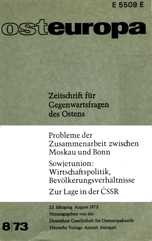
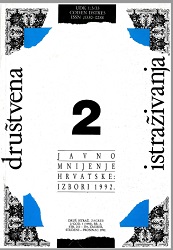
Keywords: Croatian politicians; Political parties;
The principal component analysis procedure is used in the paper in order to gather more knowledge, based on citizens' attitudes concerning Croatian political subjects, about the fundamental determinants upon which lies the perception of the Croatian political scene. A number of research projects in the pre-election period have shown that the body of Croatian political SUbjects is recognized in the public by means of categories of the "left", "right" and "central" political blocs. All the manifest diversity of party-life can be reduced to the following three factors. In assessment of figures from the political scene the public attaches to them corresponding attributes ("left", "right" and "centre"), but the ruling party is perceived as a separate entity and not as a member of the "right-wing" orientation, as is the case in assessment of parties. The pre-election dynamics of the Croatian political scene has been identified by the conducted research as a greater interior homogenization of parties, in the first place of the HDZ.
More...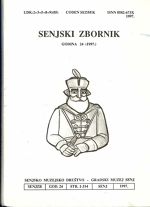
Keywords: brass-band of SenjM
In pursuance of the availabe papers and, for the most part, from various letters from Senj and, also, from various pieces of information from old Croatian newspapers between 1835 - 1945, was written an essay on the history of the brass-band from Senj, which was established as far as 1842. It seems that the brass-band from Senj has been one of the oldest musical institutions and societes in Croatia. During the 155 years of its continuance, this brass-band was taking part in all either national, church or city ceremonies, then in occasion of various holidays and in all either public entertainments or art performances. So, this band, by playing specially national pieces of music, encouraged fellow-citizens and neighbouring people (visitors) to endure in those hard times of the struggle for freedom and indipendance of Croatia, thus acquring the epithet of the band of "Senj and Croatia".
More...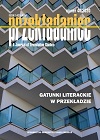
Keywords: crime fiction; CSI in translation; genre translation in Croatia;
The aim of the present study is to examine the specific features of translating crime fiction genre in Croatia in the 2000s. Frederic Jameson (qtd. in Rolls, Vuaille-Barcan, WestSooby 2016) foregrounded the notion of crime fiction’s role as the new Realism due to the importance it places on historical and geographical specificity, and the social fabric of our daily lives. In line with this, an assumption could be made that the overvaluation of place in crime fiction may present a particular challenge in translation, not only in terms of translation strategies chosen by translators, but also in terms of preferable marketing strategies pursued by publishers and editors and the correspondence between them. The focus of this study is on the patterns of handling source-culture embeddedness, typical of this genre, in translation. The study examines how diverse agents (editors, translators and language revisers) involved in the production of translations of this genre interact and how their interaction influences the decisions on handling the genre’s embeddedness in a particular, source-culture, reality. As crime fiction novels are a highly popular translated genre in Croatia, crime fiction novels make a substantial portion of the production of the publishing sector. For the purposes of this study I have selected a number of crime fiction novels by several frequently translated authors (P. D. James, Ruth Rendell, Michael Connelly) that have been published by Croatian publishers of diverse profiles, ranging from well-established publishers with long presence on the market to start-ups with a relatively short market life. The data analyzed include interviews with the agents involved (translators, editors and language revisers), peritext of these editions and analysis of selected textual segments.
More...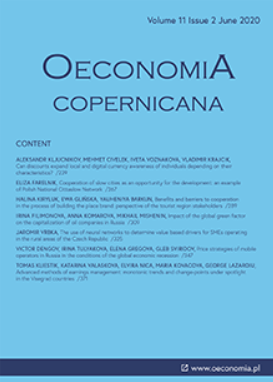
Keywords: technology business incubator; university business incubator; product innovations; process innovations; R&D activities;
Research Background: The development of fledgling enterprises, especially those associated with medium-high and high technology is not easy. They often need to develop from inception a born global strategy, which is a great challenge at the beginning of a new business. Therefore, there is a global phenomenon of incubation, which supports young enterprises in the early stages of development. In Poland, the institutional dimension of incubation (especially for enterprises associated with modern technologies) consists of technology incubators and university business incubators. Yet, scientific research conducted in the area of entrepreneurship incubation gives contradictory results - some assess their activity positively, others negatively. Purpose of the article: Enterprises located in an incubator should allocate funds for R&D activities and create innovations to develop and gain market advantage. With this in mind, the purpose of the article is to check whether technology incubators and university business incubators contribute to an increase in the likelihood of conducting R&D activities and introducing product and process innovations. Methods: The study was conducted on a sample of 1058 industrial enterprises distributed across 2 Polish NUTS level 2 regions: Pomeranian and Kuyavian-Pomeranian Voivodships. It concerned innovative activity that enterprises conducted in 2014–2016. Thanks to the use of probit modeling determination was made for the probability of introducing new products and conducting R&D works in entities that used the services of incubators in relation to those that did not belong to them. Findings & Value added: Econometric modeling revealed that in the studied regions incubators contribute to an increase in the introduction of product innovations by enterprises and in conducting R&D activities. Support for the process of implementing innovation occurred significantly more often only in the case where technology incubators were involved. At the same time, it was noticed that only academic incubators increased the chances of introducing product innovations on a global scale. This means that tenants of technology incubators are more innovative than entities outside them, but their innovations in terms of the level of novelty do not differ from innovations implemented in entities outside incubators. The conducted study indicated that the transfer of systemic solutions related to stimulating innovation from developed countries to catching-up countries may be successful. This is a guideline for local authorities to create incubators that allow for an increase in the level of innovation of the incubated enterprises
More...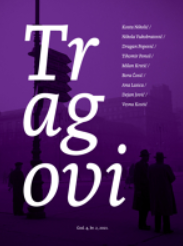
Keywords: Croatia; Serbia; FR Yugoslavia; War; Agreement on normalisation;
Agreement on normalisation of relations between Croatia and Federal Republic of Yugoslavia was signed on 23 August 1996 in Belgrade. Two states recognised each other in their internationally recognised borders, although the word recognition is not mentioned in the text of the Agreement. Instead, they recognised to each other historical continuity of statehood which is what both sides preferred and needed. The recognition was on the agenda at the meeting between Croatian President Franjo Tuđman and his Yugoslav counterpart Dobrica Ćosić already in September 1992, at the time when conflict was still ongoing. Later on, Slobodan Milošević also discussed the issue with Franjo Tuđman, but the recognition was seen as impossible at the time because of the open issue of the secessionist territory of Serb Krajina. The other open issue was related to the border in Prevlaka. Still, in January 1994 the first joint declaration between two countries was signed at the level of their Foreign Ministers and it included the need for full normalisation. This was continued through many subsequent high-level meetings. The normalisation was a topic at the peace talks in Dayton. In November 1995 two sides signed the Erdut Agreement on peaceful reintegration of Eastern Slavonia. Finally, after talks in the Athens, two sides signed the Agreement in August 1996. The article presents the main points expressed in the discussion on the occasion of ratification of the Agreement in Croatian Parliament on 19 September 1996.
More...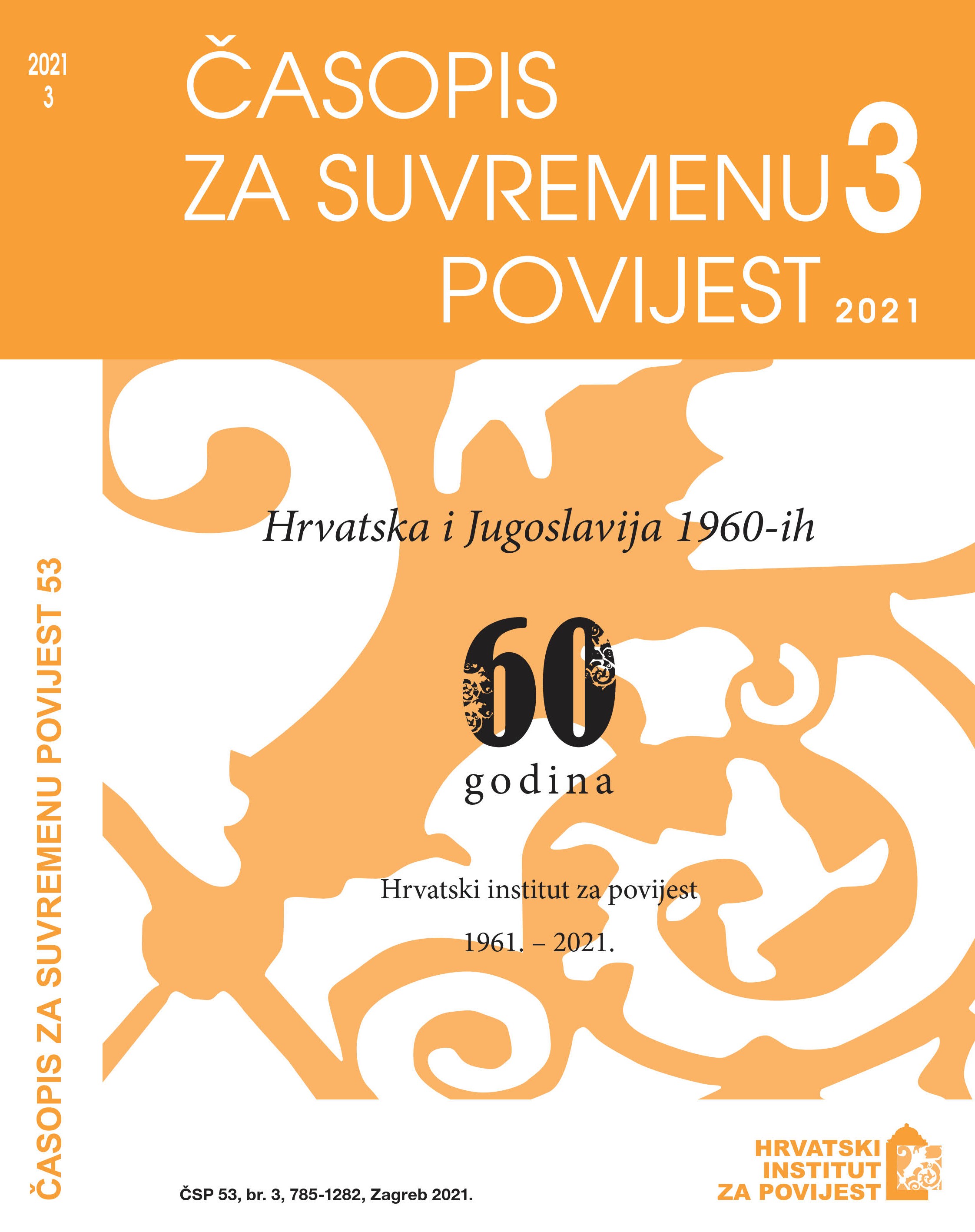
Keywords: Yugoslavia; Croatia; Šime Đodan; Stipe Šuvar; nationalism; socialism; globalism;
This paper examines the cause, flow, and context of the intellectual and political debate between Stipe Šuvar and Šime Đodan that took place during 1969, in the conditions of socio-political, cultural, and economic turmoil in the then socialist Croatia and Yugoslavia. The main question that was explicitly and implicitly present throughout the debate was: ‘Is Croatia being exploited in Yugoslavia?’ This discussion, however, was multi-layered and more complex than that. In it, the authors touched upon the relationship between nationalism and inter-ethnic economic integration within Yugoslavia as well as the integration of Yugoslavia with the world, the relationship between economy and culture, emotional and rational arguments in the political and economic spheres, nationalism and demographics, modernisation and national/ethnic emancipation, the interaction of processes in the eastern, socialist bloc and in the West, and the consequences that Yugoslavia should draw from them. As a consequence of this more complex interpretation, their opposed positions (struggle of ideas) cannot be reduced to a simple dichotomy such as socialism-nationalism and Croatianness-Yugoslavness. Furthermore, the freer speech that became predominant in Yugoslav and Croatian public space in the 1960s and 1970s made it easier to cross the borders between the economic, political, social, and cultural spheres. The economic dimension of nationalism would prove inseparable from the national discourse, and it would become apparent that it could not be adequately addressed through general debates in the field of economic theory and practice alone. Finally, the Šuvar-Đodan polemic is a reminder of the reflections on globalisation that were then taking place in socialist societies and states, and which had begun long before the fall of the Berlin Wall.
More...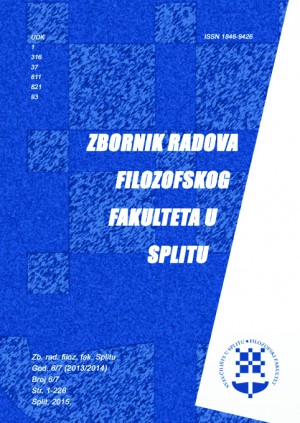
Keywords: Subtitling; Italian; Croatian; sociolinguistic analysis; dialectological analysis; translation strategies; culture-specific items;
Subtitling is a technique of audio-visual translation to which apply particular translating procedures. In Croatia, it is the method of choice when it comes to translating almost all imported audio-visual material. Probably due to the ephemeral nature of this type of translation, since the maximum period of time a subtitle can stay on screen can not be longer than six seconds, Croatian linguistics has so far witnessed only a few linguistic and translation analyses, even though subtitling reaches by far a vaster public than any other translation technique. The paper deals with the aforementioned subject from the point of view of the Italian studies in Croatia. It analyses translation methods employed in the Italian subtitling for the award-winning Croatian short film Ritki zrak (“Thin Air”, 2016). Firstly, the language variety used in the film, which can be defined as contemporary Split youth speech, is described from dialectological and sociolinguistic perspectives. Then the translation strategies used in the subtitles are presented. The analysis is carried out by using the theoretic models proposed for this text type, primarily those of Gottlieb and of Lomheim. Both are based on a classification of procedures used for the purposes of maintaining in the target text the largest possible amount of semantic, stylistic and cultural information present in the source text. Particular attention will be paid to the treatment of culture-specific items which are difficult to translate due to their non-existence in the target culture. Finally, the characteristics of subtitling as an AVT technique will be discussed based on the conducted traductological analysis. Some general observations on the orientation of the translation in this text type will be presented as well.
More...
Keywords: Carniola; Ljubljana; the Spanish flu; 1918–1919;
The first part of the article at hand describes the world at the time of the Spanish flu pandemic, while in the continuation, it focuses on Carniolan cities with an emphasis on Ljubljana, as well as on the countryside. Based on printed sources – despite their scarcity – it manages to illustrate, to some extent, the health situation of the population and at least partially answer the question of whether people were sufciently informed about the epidemiological situation and what the authorities did to ensure their safety. The author does not have any information at her disposal that would shed light on how people perceived the disease that claimed as many lives in such a short period of time as no war or famine before it, how the infected coped with it, how the population reacted to the (insufcient) measures of the authorities, and so on.
More...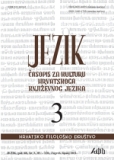
Keywords: Josip Šentija; Croatian language; Yugoslav linguistic unitarism; language policy; Radio Zagreb; Declaration on the Name and Status of the Croatian Literary Language; Croatian Spring;
The article discusses the contribution that the journalist, lexicographer and publicist Josip Šentija gave to the affirmation of the Croatian literary language by supporting the Declaration on the Name and Status of the Croatian Literary Language and by defending it against unitary linguistic and political attacks. It further discusses the suppression of the attempted Serbian language colonization of Radio Zagreb; the harvesting of the first postdeclaration fruits manifested in the amended language articles in the 1974 constitutions of Yugoslav republics; the implementation of Art. 138 of the Constitution of the Socialist Republic of Croatia about language in the third edition of the General Encyclopaedia of the Lexicographic Institute, and the cooperation with Miroslav Krleža and the central editorial board in building an encyclopaedic style and nurturing the Croatian language. Finally, the article analyses Šentija’s modern social democratic political orientation and his clear views of national components in the context of the disintegration of Yugoslavia and of the creation of an independent Croatian state, with an emphasis on Croatian-Serbian relations and on Greater Serbian expansionist programme that was partially founded on Karadžić’s motto “Serbs everywhere”, built around the non-scientific premise about the exclusive Serbianness of the Štokavian dialect.
More...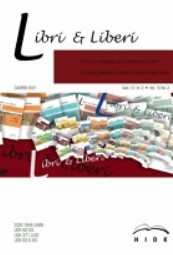
Keywords: Libri & Liberi; 2012–2021; Bibliography;
Libri & Liberi 2012–2021 - A Bibliography of the First Ten Volumes Compiled by Helena Horžić
More...
Keywords: List of authors; Libri & Liberi; 2012–2021;
List of authors - Libri & Liberi 2012–2021
More...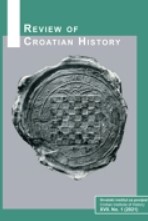
Keywords: Franjo Tuđman; contemporary Croatian history; textbooks; history as school subject;
This paper analyses the way in which Dr Franjo Tuđman is depicted in the textbooks used in Croatian schools. The author concludes that while some basic biographical data are provided, with respect to his contribution as a statesman some authors are prone to politicization and even self-censorship, the intention of which is to diminish his contribution to the history of the Croatian people. Most issues concerning internal and external policies require further research.
More...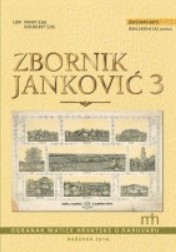
Keywords: State Security Service; Yugoslavia; Socialist Republic of Croatia;
This paper discusses and links some aspects of the work of the State Security Service of the Socialist Republic of Croatia, primarily in two years - 1979 and 1980. The aim of the paper is to introduce readers to the groups and organizations considered by the SSS as hostile, than with the sources of information through which SSS gathered data regarding the actions of the „enemy elements“ and also with the various actions which SSS use to conduct against mentioned elements. The article also takes into account the activities of the SSS as the part of the Yugoslav Communist regime, presenting a broader picture of this issue.
More...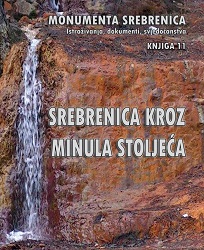
Keywords: antirationalism; lie; hatred; genocide; Bosniaks; nacional-cultural Great Serbian programs;
Manje više je poznato da su duhovno-kulturni nosioci, inspiratori i ideolozi političkih programa srpskog velikodržavlja: Srpska akademija nauka i umjetnosti (SANU), Udruženje književnika Srbije (UKS) i Srpska pravoslavna crkva (SPC). O utjecaju i ulozi ovih institucija, kroz raznovrsne programske sadržaje koje su izgradile, na rat protiv bosanskohercegovačkog društva i države od 1992.-1995. godine, te zločine genocida nad Bošnjacima, istina, napisan je zavidan broj radova, ali nisu do kraja, na naučno relevantan način, eksplicirani svi segmenti uloge njihovih programskih sadržaja. Također, nauka je utvrdila da su najznačajniji društveni faktori nacionalnih integracija, ne samo kod južnoslavenskih naroda, već uopće: država, kultura i crkva. Kod razvoja srpskog nacionalnog identiteta to je posebno izraženo. Na tim osnovama su i nastali nacionalno-politički, nacionalno-kulturni i nacionalno-crkveni srpski velikodržavni projekti, ne odvojeno jedan od drugog, već naprotiv, čine jedinstvenu strukturu cjeline velikosrpske nacionalne ideologije i prakse. U dosadašnjim radovima o uzrocima genocida nad Bošnjacima, akcentirani su i dosta eksplicitno analizirani utjecaji nacionalno-političkih velikosrpskih programa. Mnogo manje su naučno obrađeni genocidni sadržaji u nacionalno-kulturnim i nacionalno-crkvenim programima srpskog velikodržavlja. Iz tih razloga ovom prilikom analizirat ćemo neke primjere antiracionalizma, laži, mržnje, u nacionalno-kulturnim i nacionalno-crkvenim velikosrpskim programima i njihov utjecaj na zločin genocida nad Bošnjacima ne samo u ratu protiv bosanskohercegovačkog društva i države 1992.-1995. godine već od početka tzv. nacionalno-oslobodilačkih pokreta na južnoslavenskim prostorima.
More...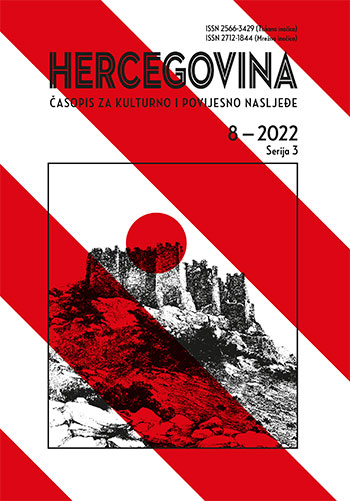
Keywords: intellectual history; League of Communists of Yugoslavia; Socialist Yugoslavia; internal enemy; civil right; nationalism;
A new category – the civil right – was added to the register of internal enemies of the Socialist Federative Republic of Yugoslavia, which the communist regime understood to be the groups and individuals who have been considered the critical intelligentsia in post-Yugoslav interpretations. The direct reason for its introduction was the assessment that the intellectual opposition and enemies across Yugoslavia were uniting to achieve a partnership position vis-a-vis the League of Communists. The assessment was unfounded, the intellectual opposition, irrespective of how we define it (dissidents, critical intelligentsia, and the like) had very little influence or strong association. It was limited to intellectual reviews and magazines whose circulation was small and whose humble influence could be measured in numbers as several hundred interested people. The regime considered the civil right as its most dangerous opposition in the middle and second half of the 1980s due to its intellectual constitution. Such an assessment was the usual exaggeration of the system which had a habit of giving unacceptable phenomena a decidedly greater significance than was the case. The civil right should be approached as a phenomenon that can be the stimulus for research on intellectual history in the non-liberal society of the last few years of socialism. This new type of enemy greatly “benefited” nationalists, a significant number of whom were assigned into the civil right category, which subsequently meant milder treatment as accusations of nationalism were the severest qualification of the regime in the 1980s, particularly in Bosnia and Herzegovina and Croatia. Serbian and Slovene nationalism benefited the most from the new category. The greater part of the civil right from the mid 1980s was already holding posts, which were undoubtedly nationalist, as early as 1989.
More...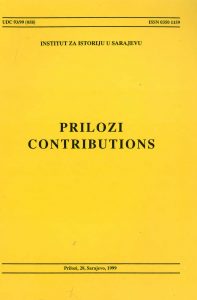
Keywords: Sarajevo; history; Bosniaks; Muslim formations in Tuzla; Hrvatska seljačka stranka; 20th century; BiH; genocide;
Reviews of: Prilozi historiji Sarajeva. Orijentalni institut, Institut za istoriju, Sarajevo, 1997, str. 531. Izlaganje održano na promociji u Narodnom pozorištu 10. januara 1998. Godine; Mustafa Imamović, Historija Bošnjaka, Bošnjačka zajednica kulture “Preporod”, Sarajevo, 1997, str. 636 ; Mladen Ančić, Putanja klatna. Ugarsko-hrvatsko kraljevstvo i Bosna u XIV. stoljeću. Zavod za povijesne znanosti HAZU u Zadru i ZIRAL (Zajednica izdanja Ranjeni labud), Zadar - Mostar, 1997., str. 308. (lat.); Adnan Jahić: Muslimanske formacije Tuzlanskog kraja u Drugom svjetskom ratu. Tuzla, 1995, DD “Zmaj od Bosne” i KDB “Preporod”, str. 133; Francine Friedman, Yugoslavia, A Comprehensive English-Language Bibliography, Compiled and Edited by Francine Friedman, Scholary Resources Inc., Wilmington, Delaware, 1993, str. 547; Zdenko Radelić, Hrvatska seljačka stranka 1941.-1950, Hrvatski institut za povijest, Biblioteka Hrvatska povjesnica, Monografije i studije, knjiga 3, Zagreb, 1996, str. 256; Genocid u Bosni i Hercegovini 1991.-1995. Zbornik radova Međunarodnog kongresa za dokumentaciju genocida u Bosni i Hercegovini 1991.-1995., održanog u Bonu od 31. avgusta do 4. septembra 1995. godine, Sarajevo, 1997, str. 814; Naučni skup: Događanja historije u sjenci balkanskih ratova (Doing History in the Shadow of the Balkan Wars), University of Michigan, Ann Arbor. 18. januar 1997.godine.
More...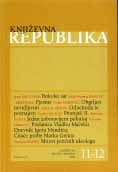
Keywords: Croatian public life; Slavko Goldstein; Cultural and social history;
Koliko vrijedi Slavko Goldstein najbolje se vidi po tome što ga Zagreb ni poslije toliko godina nije uspio zatvoriti u neku nišu, kao većinu ljudi koji dugo djeluju, pa ako se ne uklope u poredak, postanu lokalne veličine koje, kao ekscentrike, treba tolerirati zbog slikovitosti pojave što obogaćuje našu sredinu. Sve što napravi Slavko Goldstein ipak je previše važno ili previše kontroverzno da bismo ga tako olako mogli marginalizirati.
More...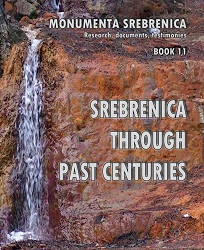
Keywords: antirationalism; lie; hatred; genocide; Bosniaks; nacional-cultural Great Serbian programs;
It is more or less known that the spiritual and cultural carriers, inspirers and ideologues of the political programss of the Serbian great state are: the Serbian Academy of Sciences and Arts (SANU), the Association of Writers of Serbia (UKS) and the Serbian Orthodox Church (SPC). On the influence and role of these institutions, through the various program contents they built, on the war against the Bosnian society and state in from 1992 to 1995, and the crimes of genocide against Bosniaks, it is true, an enviable number of papers have been written, but not all segments of the role of their program contents have been fully explained in a scientifically relevant way. Also, science has determined that the most important social factors of national integration, not only in South Slavic peoples, but in general are: state, culture and church. This is particularly pronounced in the development of Serbian national identity. National-political, national-cultural and national-ecclesiastical Serbian greatstate projects were created on those bases, not separately from each other, but on the contrary, they form a unique structure of the entire Great Serbian national ideology and practice. In previous works on the causes of the genocide against Bosniaks, the influences of the national-political Great Serbian programs were emphasized and quite explicitly analyzed. The genocidal content in the national-cultural and national-ecclesiastical programs of the Serbian great state has been scientifically treated much less. For these reasons, on this occasion we will analyze some examples of anti-rationalism, lies, hatred, in the national-cultural and national-ecclesiastical programs of Greater Serbia and their influence on the crime of genocide against Bosniaks, not only in the war against the Bosnian society and state from 1992 to 1995, but since the beginning of the so-called national liberation movements in South Slavic areas.
More...